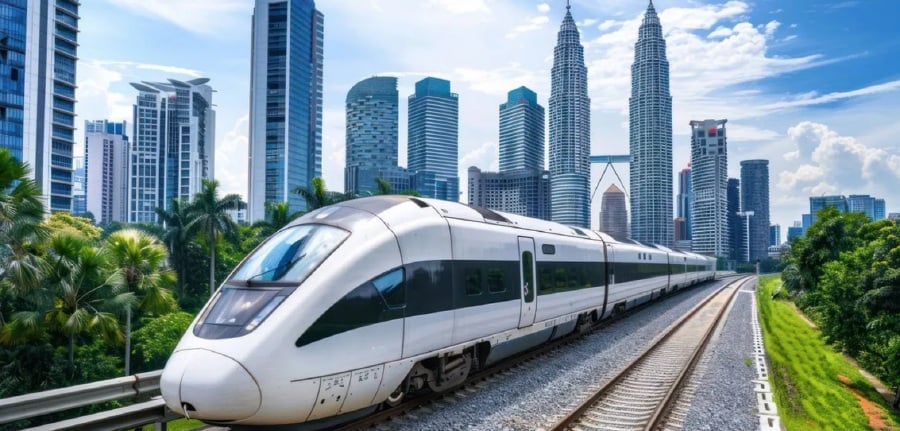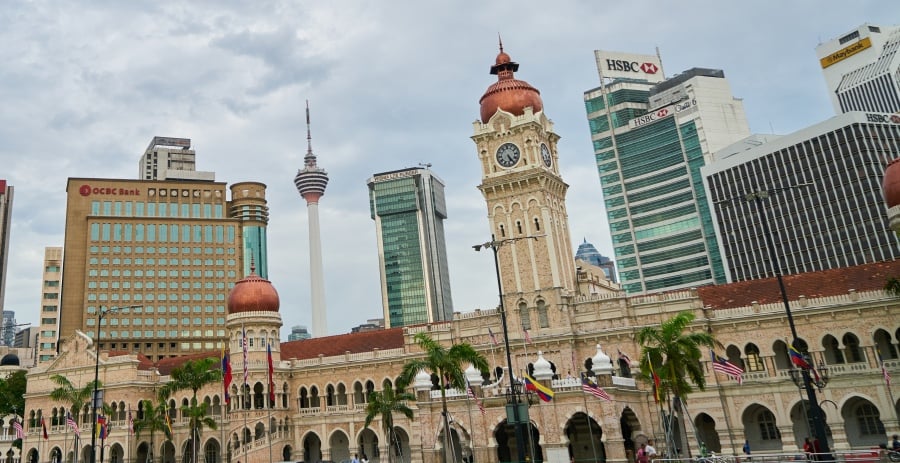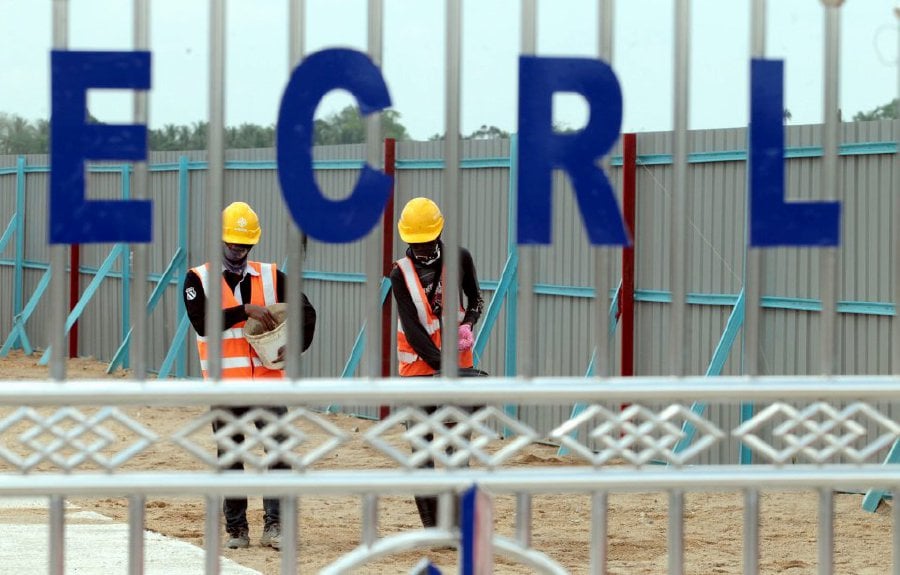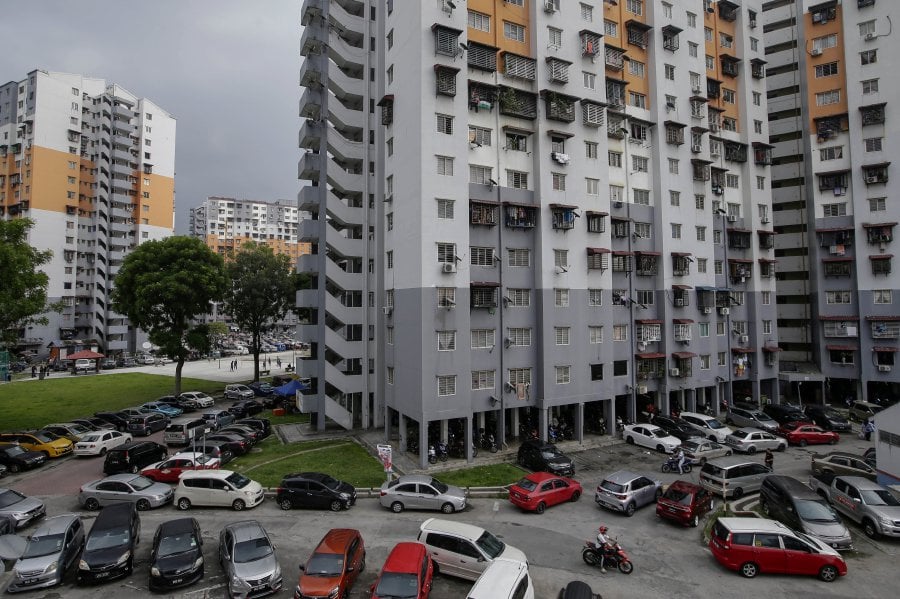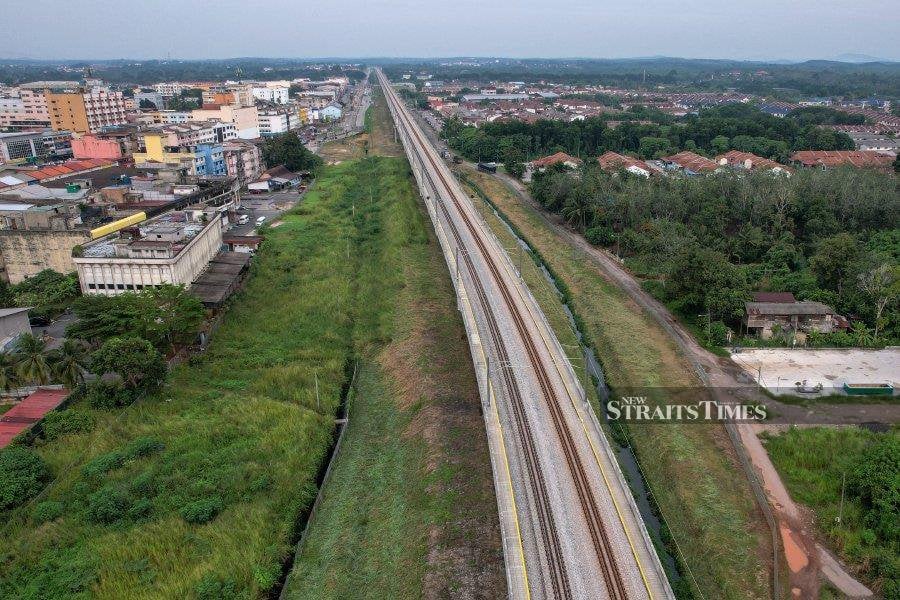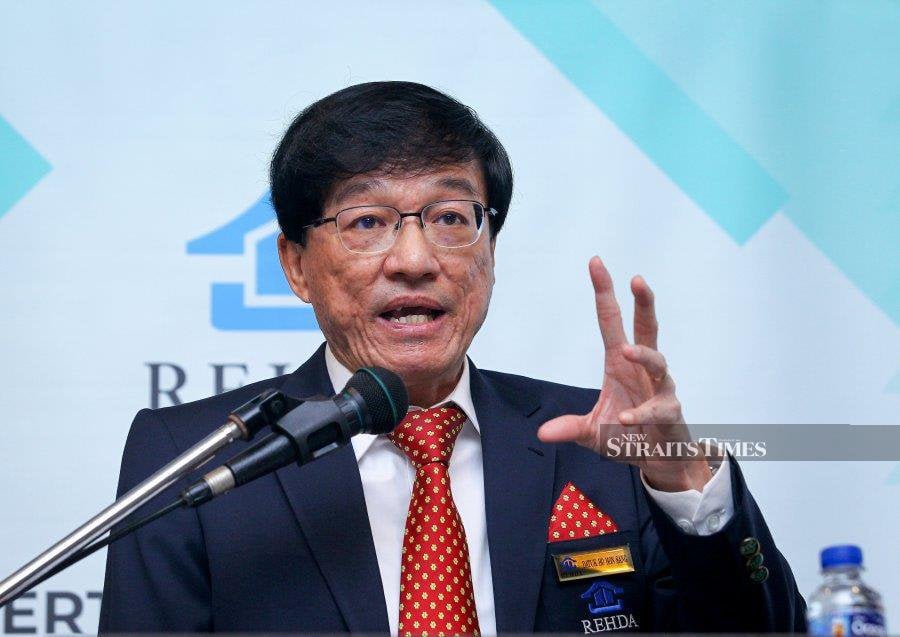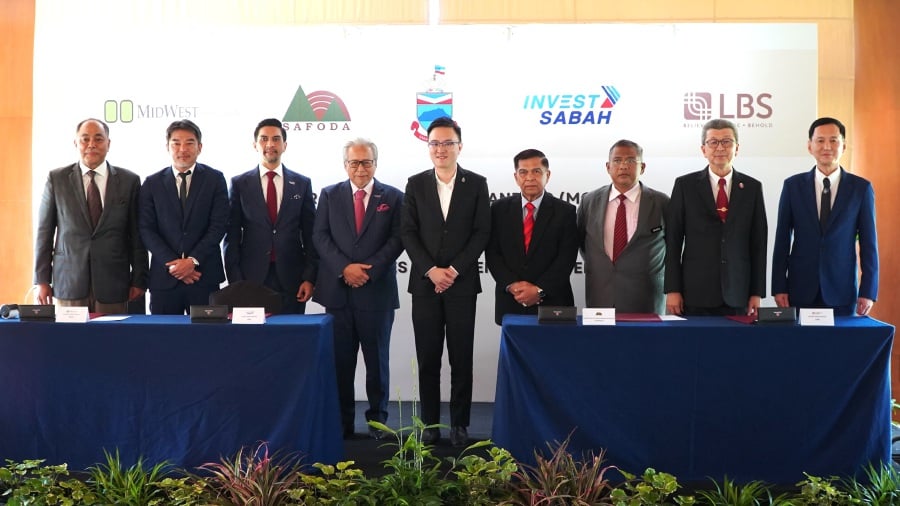By Sharen Kaur/ NST Business Times
KUALA LUMPUR: The Kuala Lumpur-Singapore High-Speed Rail (HSR) project is unlikely to be implemented in the near term due to Malaysia's current economic growth trajectory and fiscal constraints, according to Sunway University economics professor Dr. Yeah Kim Leng.
Dr. Yeah, who also serves as an external member of Bank Negara Malaysia's monetary policy committee, noted that the government has indicated the HSR project will only proceed if it is privately funded.
"Government support for the HSR will be kept minimal to avoid disrupting its medium-term fiscal consolidation framework, which aims to steadily reduce the fiscal deficit and government debt levels," Dr. Yeah told Business Times.
He added that the project could become financially feasible for the government, once fiscal pressures are significantly reduced, likely after 2030.
Finance Minister II Datuk Seri Amir Hamzah Azizan has confirmed that discussions to revive the HSR project have not yet begun.
In an interview with Singapore's The Straits Times ahead of the 11th Malaysia-Singapore Leaders' Retreat scheduled for late 2024, he emphasised the government's focus on completing existing transportation infrastructure projects to support economic growth.
"HSR is something that we will always consider, and a study has been conducted. However, at the moment, the Cabinet has not discussed it to that level. We are waiting for the Cabinet's decision," Amir Hamzah told ST.
He noted that Malaysia is currently prioritising the completion and further development of its existing transportation projects, including the Gemas-Johor Bahru Electrified Double-Track Rail Project (Gemas-JB EDTP) and the East Coast Rail Link (ECRL).
"The priority must be on what we have today... The focus should be on realising the value from Gemas-JB EDTP and ECRL. This is where the government's attention should be," he said.
Meanwhile, economists remain divided on the necessity of another railway project, given that the Gemas-JB EDTP is nearing completion and the ECRL is progressing steadily.
For now, Malaysia's strategy centres on optimising its current transportation investments before considering new large-scale infrastructure projects like the HSR, said Olive Tree Property Consultants chief executive officer (CEO), Sr. Samuel Tan.
"While waiting for a final decision for the HSR, there are issues to be addresed. Do we need the HSR? Can we afford it if there is not governmental funding? Is there an alternative?
"If there is no governmental funding or guarantee, then it has to be a private driven initiative. Securing strong investors will be a major issue. Only financially strong companies will be willing to take the risks. And often these will come from foreign countries. Arising from these will be the possibility of increased national debt, something we should avoid.
"To ensure viability, the fares must be high enough. The question arising is affordability and the sufficiency of ridership," he told Business Times.
Tan said assuming that the HSR does not proceed, Malaysia cna bank on the double-tracking electrified system and the ECRL.
''Although slower, the two major lines still serve the purpose of an alternative mode of transportation and the fares are likely to be cheaper," he said.
Delaying the MRT3 construction allows government to replenish funds, analysts said
The Mass Rapid Transit 3 (MRT3) construction, which is expected to begin in 2027, will buy the government more time to strengthen its fiscal position for the project.
Tourism and transport consultant YS Chan noted that MRT3, while necessary in the long term, is not an immediate priority.
"Similar to the high speed rail (HSR) project, the MRT3 is not urgently required but eventually needed. Obviously, funds are in short supply currently, hence the delay until such time they become available and can be beyond 2027. And just like the HSR, the MRT construction would become costlier with each passing year," he told Business Times.
Mass Rapid Transit Corporation Sdn Bhd (MRT Corp) CEO Datuk Mohd Zarif Hashim recently said that on-site construction will only commence after completing land acquisition, a process expected to take up to two years, extending into 2026.
CIMB Securities Sdn Bhd analyst Mak Hoy Ken said the delay aligns with expectations, as the government is likely to revisit the project after implementing its petrol subsidy rationalisation scheme, targeted for mid-2025.
The government, under the revised 2023 Budget, has aimed to cut MRT3 project costs to below RM45 billion, down from the RM68 billion estimated in 2018. Of the original RM68 billion, RM34 billion was allocated for construction works.
"Land acquisition issues aside, the move to extend the planning process provides the government with much-needed breathing space to recalibrate its fiscal position and wriggle room to undertake a re-tendering exercise, as the project's key inputs may have changed since the expiry of its original tender validity in March 2024.
"Although a pushback in MRT 3's construction timeline to 2027 could be a minor setback for the construction industry, we firmly believe that the project will still continue, given its strategic importance as the final piece of the Klang Valley MRT network, integrating with existing rail systems that runs on the periphery of Kuala Lumpur city centre," he added.
Besides allowing the government to better allocate resources, transport expert Dr Rosli Azad Khan said the government can focus on increathe efficiency and ridership of Mass Rapid Transit (MRT) 1 and MRT 2 and other existing public transport systems
"If these systems remain underutilised, the additional capacity MRT3 promises will not be worth the investment," he said
He added that delaying MRT3 provides time to reevaluate urban growth patterns and population densities. This ensures that the MRT3 network is aligned with areas of highest need, increasing the likelihood of higher ridership when completed.
For the construction industry, Rosli said while delays may create short-term uncertainty for the construction industry, this does not necessarily harm the industry in the long run.
"Rushing into MRT3's construction without ensuring optimal planning and financing could lead to cost overruns and mismanagement, as seen with MRT1 and MRT2.
"A delay provides time to assess lessons learned, ensure better procurement processes, and maximize project value, ultimately benefitting the industry through streamlined execution and improved reputational outcomes," he added.
He also said that other projects such as rail double tracking, highways, housing, and renewable energy projects—are still ongoing, offering opportunities to keep the construction industry engaged.
"A delay in MRT3 does not equate to the collapse of the construction sector, as resources can be redirected to other government or private sector projects in the interim."
Also known as the Circle Line, MRT3 spans 51 kilometres (km), including 40 km of elevated track and 11 km underground, with a capacity to handle 25,000 passengers per hour in each direction. The full journey will take roughly 73 minutes and include 32 stops.
The project, which has been on the drawing board for several years, has seen progress with one of its five main packages awarded to HSS Engineers Bhd in August 2022.
Source: https://www.nst.com.my/business/corporate/2024/11/1137901/no-immediate-need-kl-singapore-hsr-amid-fiscal-constraints-say
